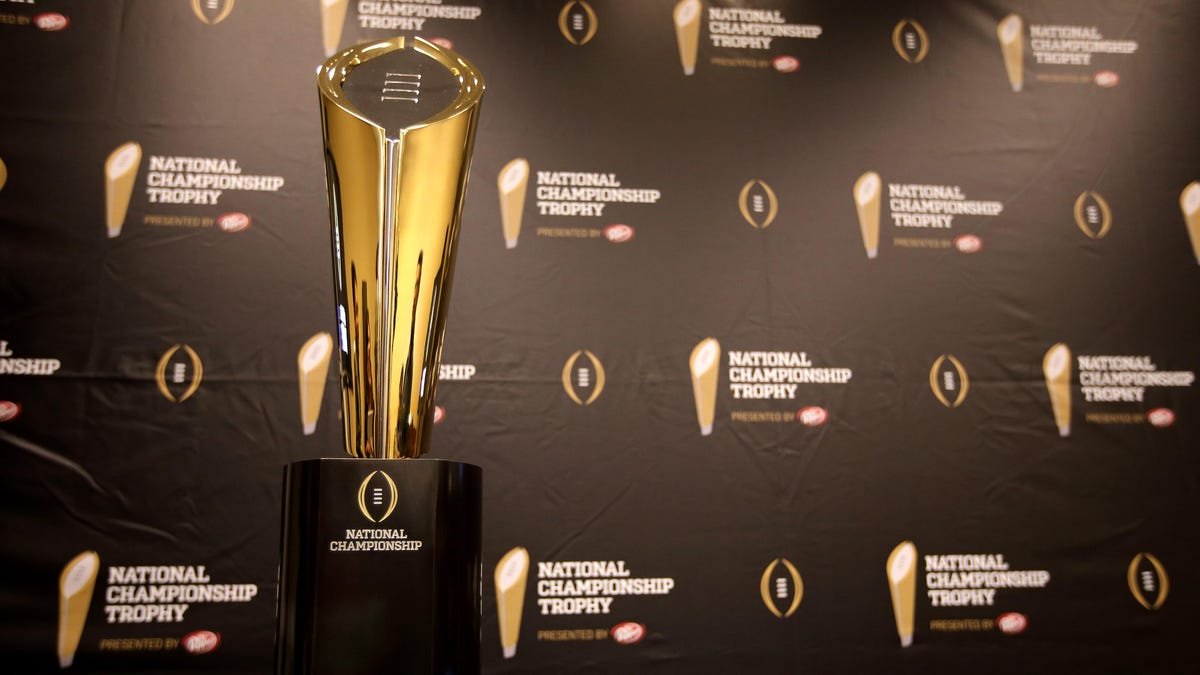College Football Playoff Expansion: A Greedy Path to Destruction
Hours after it was announced that the College Football Playoff would adopt a 5+7 format, the conference commissioners leaked that 14- and 16-team formats have been discussed. The idea of expanding the playoff system to accommodate more teams has been a topic of debate for years, with many arguing that it dilutes the quality of competition and undermines the integrity of the sport.
Jim Phillips, ACC commissioner, and captain of a drowning vessel, said, “At the end of the day, it’s about the right model.” That model, of course, is aggressive expansion until there are the 32 playoff teams of Christmas. The rush to expand the playoff system seems to be driven by financial incentives rather than a genuine concern for the sport.
I’m frankly too cynical to try to think of a catchy nickname for this eventuality, so I’ll just cede it to the sponsors. There hasn’t been a single run-through of the 12-team format, and already conference heads are counting the next payday. The focus on profit over the quality of the game is evident in the discussions surrounding playoff expansion.
“We talked about some formatting and 14 (teams) came up,” Big Ten commissioner Tony Petitti said. “We’ve got more work to do.” More work to do? Are the cash machines even operable after counting the TV contract money? The rush to expand the playoff system without fully understanding the implications is concerning, to say the least.
The NCAA is never going to inhibit the growth of its golden geese, and the potential of a monthlong playoff around the holidays is so tempting. Growth also keeps the NCAA from lawsuits about snubs, restrictions, and all the other random criticism that, frankly, it should face. The prioritization of profit over the well-being of student-athletes and the integrity of the game is a worrisome trend in college sports.
More money will come in handy when the players finally get a revenue-sharing deal — so maybe it’s a good thing? Let’s be honest, the way colleges spend money is ridiculously irresponsible, and if they had to foot the bill for another couple hundred employees, might need a cash injection like any of these other poorly run professional sports franchises. Can hedge funds buy state property? Let’s hope the Saudis can’t.
Following conference championship weekend this year, there were six three-loss Power Five programs for spots 13-16. Two of those schools were Iowa and NC State, who couldn’t score more than 20 points against some FCS teams. No one is asking for this, nor are any semi-conscious fans traveling to four consecutive destination vacations.
And if you’re wondering, yes, I will be intently watching every playoff game because that’s all any good U.S. citizen can do. But before I sit down to enjoy this veritable early March Madness, I want to go on record as saying corporate America, the NCAA, and conference commissioners are all a bunch of greedy sociopaths marching society to its destruction.
In the midst of discussions about playoff expansion, Toronto Maple Leaf Auston Matthews scored his 50th goal of the season Wednesday in 54 games, becoming the fastest player to reach that mark in a single season since Mario Lemieux deposited 50 goals in as many outings to start the 1995-96 campaign. This achievement in hockey highlights the skill and dedication of athletes who strive for excellence in their sport.
While the focus on individual achievements in sports is commendable, the relentless pursuit of profit and expansion in college football raises concerns about the future of the game. It’s time for stakeholders to prioritize the well-being of student-athletes and the integrity of the sport over financial gain. Expanding the College Football Playoff may bring in more money, but at what cost?





